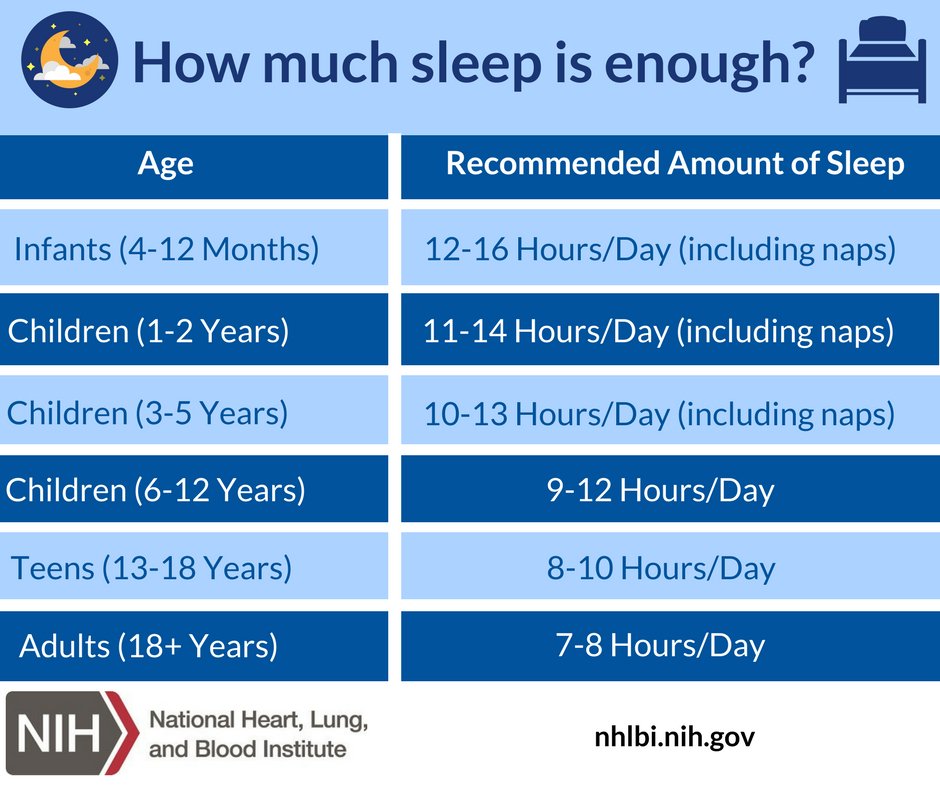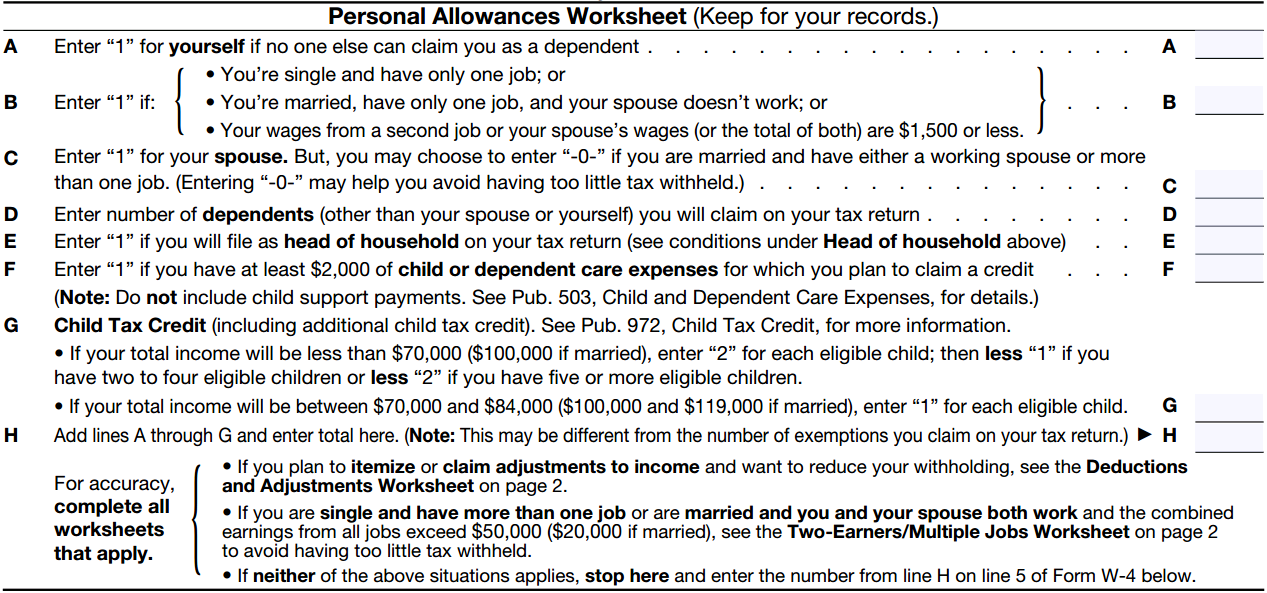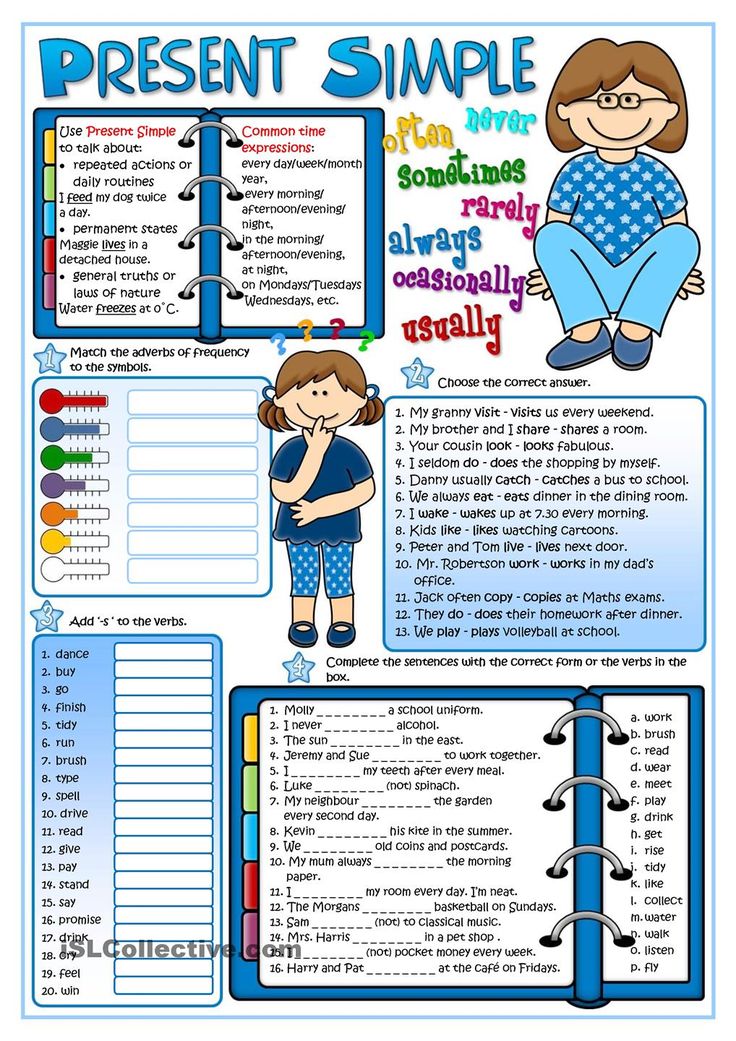How to be strict with your child
The Key to Being a Consistent Parent
Picture this scene: Your teen’s curfew is 11:30 p.m. and you stay up waiting for her. When she doesn’t come home on time, you pace and worry, your mood alternating between fear and anger. When your daughter finally waltzes in well past midnight, she disrupts everyone in the house and makes excuses when you ask, “Where have you been?” Part of you is furious.
But there’s another part of you that thinks, “Well, she’s been doing a good job lately with her school work. And at least she’s not sneaking out and smoking anymore… maybe I should just let this one slide.” And maybe the truth is that sometimes you give consequences for breaking curfew and other times you don’t. The behavior continues because your child knows she can get away with being late sometimes.
You know that what you’re doing isn’t really working, but you’re not sure how to make things better. That’s okay—you’re not supposed to know all the answers. Many parents have a hard time being consistent and struggle because of guilt, self-doubt, or just sheer exhaustion.
Here’s the good news—you can overcome the obstacles you face. Even if you think you’ve been inconsistent up to this point with your child, it’s never too late to change. Let’s take a look at why it’s important and how you can start being more consistent right away.
Why Consistency is Important
No one can be 100% consistent 100% of the time, but what happens when you’re frequently inconsistent? You’ll find that your child’s behavior will get worse—and you’ll be more tired and worn down as a result.
Why is consistency important for kids? Children need to know what to expect because it helps them make informed decisions. As they grow, they learn that certain behaviors lead to certain outcomes. This shapes whether your child will repeat that behavior in the future.
The best way to illustrate this is with the classic slot machine example: You put your money in the machine and pull the lever. You don’t know what images you’ll see when the spinning stops. Will you get cherries? Sevens? Lemons? But you know what you want—the jackpot, or at least some kind of monetary gain.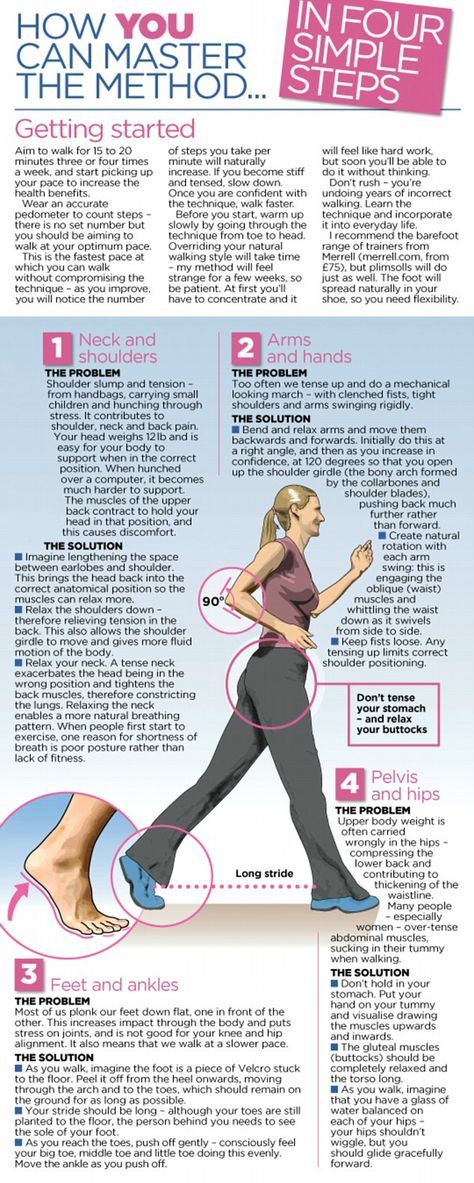
We are like slot machines and our kids are like the hopeful gamblers that stand before us, repeatedly pulling the lever. They know they may not get anything as a result—you might say “no” or give them a consequence. They might get some money back if you don’t follow through with your consequence. Or, if they’re really lucky, they’ll hit the jackpot and get exactly what they want with no uncomfortable consequences at all.
If your response often varies, your child will keep pulling the lever, hoping for a favorable outcome. This is an example of what is called a “variable interval reinforcement schedule”— the most powerful type of reward system in behavioral psychology. Just like it works with gamblers, because the frequency and size of the reward varies, it works with your child. And it becomes very difficult for your child to stop playing the slot machine—which is you, the parent!
To make matters worse, there’s a good chance you’ll be seen as less of an authority when you’re not consistent.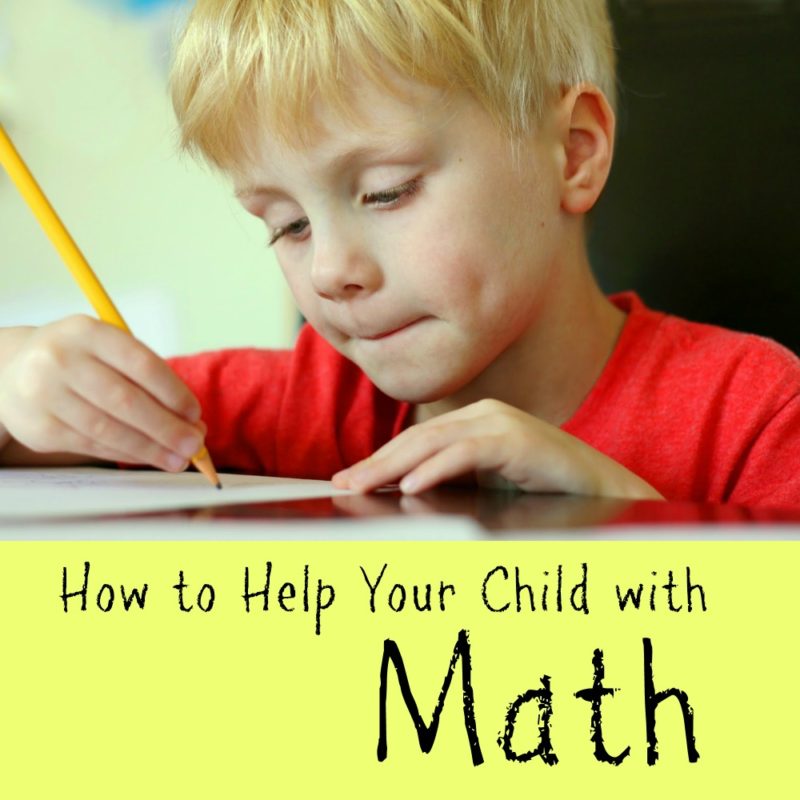 This is because you might say one thing, like “Don’t swear,” but fail to consistently back that up with actions that show you mean it, such as providing a meaningful and effective consequence each and every time. When your child gets the message that you don’t mean what you say, what you say starts to lose meaning.
This is because you might say one thing, like “Don’t swear,” but fail to consistently back that up with actions that show you mean it, such as providing a meaningful and effective consequence each and every time. When your child gets the message that you don’t mean what you say, what you say starts to lose meaning.
4 Ways to Be More Consistent
Being a parent is hard work—there’s no mistaking that. Life in general is chaotic and messy, and the simple fact that we’re human makes us prone to making mistakes. We forget things, we get confused, we lose track of time, and sometimes we get so tired that we just don’t have the energy to handle our child’s challenging or obnoxious behavior. It’s not easy to stay on top of things all the time, let’s face it. So we think, “I’ll let it go, just for today.” Here are some ideas that will help you start to improve your consistency as a parent:
1) Choose one thing first. One of the no-fail rules to follow when you’re trying out new parenting techniques is to choose just one behavior to start with. Empowering Parents’ Coaches talk to parents all the time who are “biting off more than they can chew” and getting really frustrated, confused, and worn out. When you try to tackle all the behavior issues you’re experiencing with your child at one time, you’re not likely to be very successful. So choose a specific high-priority issue to start with like stealing, swearing, homework completion or bedtime, for example. Once you get more consistent in setting and enforcing limits in that one area, then you can branch out and start working on another. Slow and steady wins the race, right? Right!
Empowering Parents’ Coaches talk to parents all the time who are “biting off more than they can chew” and getting really frustrated, confused, and worn out. When you try to tackle all the behavior issues you’re experiencing with your child at one time, you’re not likely to be very successful. So choose a specific high-priority issue to start with like stealing, swearing, homework completion or bedtime, for example. Once you get more consistent in setting and enforcing limits in that one area, then you can branch out and start working on another. Slow and steady wins the race, right? Right!
2) Use positive self-talk. Be kind to yourself and talk to yourself about what you want to see happen. What do you want your child to learn? Ask yourself what will likely happen if you let the behavior slide ‘just this one time’ as opposed to taking a deep breath and just doing what you know you need to do. Think about your long-term goal and what might happen over time if you don’t stay consistent on the issue you’ve undertaken. Debbie Pincus, creator of The Calm Parent: AM & PM, recommends that parents come up with slogans or mottos they can use to keep themselves on track and in control, emotionally and otherwise. Your motto might be, “I am the leader here, and I need to let my child know what my bottom line is. I can do this.” Find one that works for you and use it.
Debbie Pincus, creator of The Calm Parent: AM & PM, recommends that parents come up with slogans or mottos they can use to keep themselves on track and in control, emotionally and otherwise. Your motto might be, “I am the leader here, and I need to let my child know what my bottom line is. I can do this.” Find one that works for you and use it.
3) Try something new. When I was a school counselor, I did a weekly classroom lesson with students about skills that would help them be more successful in school. One phrase we revisited regularly in my lessons was, “If what you’re doing isn’t working, try something different.” This goes along with James Lehman’s idea of realization—parents need to be able to acknowledge something isn’t working and change it, because things will not just change on their own. You, as the parent, are the change agent. James advocates teaching children better problem-solving skills in the Total Transformation program, and I think this works for adults, too. If you are having trouble being consistent, figure out what is at the root of that—is it fatigue, guilt, confusion, forgetfulness? Get to the root of the problem and come up with a specific plan you can use to help yourself stick to the limits you’ve set and give consequences more consistently.
If you are having trouble being consistent, figure out what is at the root of that—is it fatigue, guilt, confusion, forgetfulness? Get to the root of the problem and come up with a specific plan you can use to help yourself stick to the limits you’ve set and give consequences more consistently.
4) Take care of yourself. Taking care of yourself means two things. First, allow yourself a short break or time-out when you’re feeling overwhelmed. Give yourself time to come up with a response if your child is in your face begging, arguing, fighting, or complaining. Let your child know you can’t answer them just yet and walk away. Take some time to calm down and think about what you want to do next. Also, if you’re feeling exhausted or overwhelmed, make room for at least 15 minutes for yourself each day with the purpose of doing something you enjoy that helps reduce your stress level. Taking care of yourself also means asking for support from others. You might talk to your spouse and come up with a subtle way you can remind each other to be consistent. It might also mean finding someone in your local area whom you can talk to about what’s going on—someone supportive who can help you manage the stress and demands of parenting more effectively. Either way, taking care of yourself is a way to be an empowered parent. You don’t have to give in to the pressure that your child’s behavior puts on you—and you don’t have to do this alone.
It might also mean finding someone in your local area whom you can talk to about what’s going on—someone supportive who can help you manage the stress and demands of parenting more effectively. Either way, taking care of yourself is a way to be an empowered parent. You don’t have to give in to the pressure that your child’s behavior puts on you—and you don’t have to do this alone.
When Parents Change, Kids Push Back
The number one thing you will notice in your child as you start to be more consistent is “push back.” Push back is your child’s way of saying, “Wait a minute, I don’t like what’s going on here!” Push back comes in a lot of different forms. It can appear as complaints, such as “I hate you! You’re mean! You don’t love me!” or it can appear as arguing, pleading, or negotiating. Some kids will push back by passively resisting you or pretending they didn’t hear you ask them to do something. You might notice that your child appears a bit angrier or more emotional at first, too. We talk to parents every day who are experiencing this usually temporary escalation in behavior issues that can occur when you change your parenting style. What we’ve found is that if parents continue to be consistent and walk away when their children are pushing back, things will start to settle back down.
We talk to parents every day who are experiencing this usually temporary escalation in behavior issues that can occur when you change your parenting style. What we’ve found is that if parents continue to be consistent and walk away when their children are pushing back, things will start to settle back down.
Keep in mind it’s not necessary to give consequences for complaining, arguing, or bad attitude. If the push back leads to verbal or physical abuse, destruction of property, or other safety issues such as running away or sneaking out, there are the really important examples of pushback for which you’d definitely want to give consequences or call the police. Otherwise, as long as the behavior isn’t blatantly abusive or unsafe, it’s most effective to ignore it and remove yourself from the situation.
The Real Importance of Consistency
James Lehman says that the rules shouldn’t get more—or less—strict because you’re tired, or frustrated about something at work. And your rules shouldn’t be more lenient because you’re enjoying yourself and having a good day.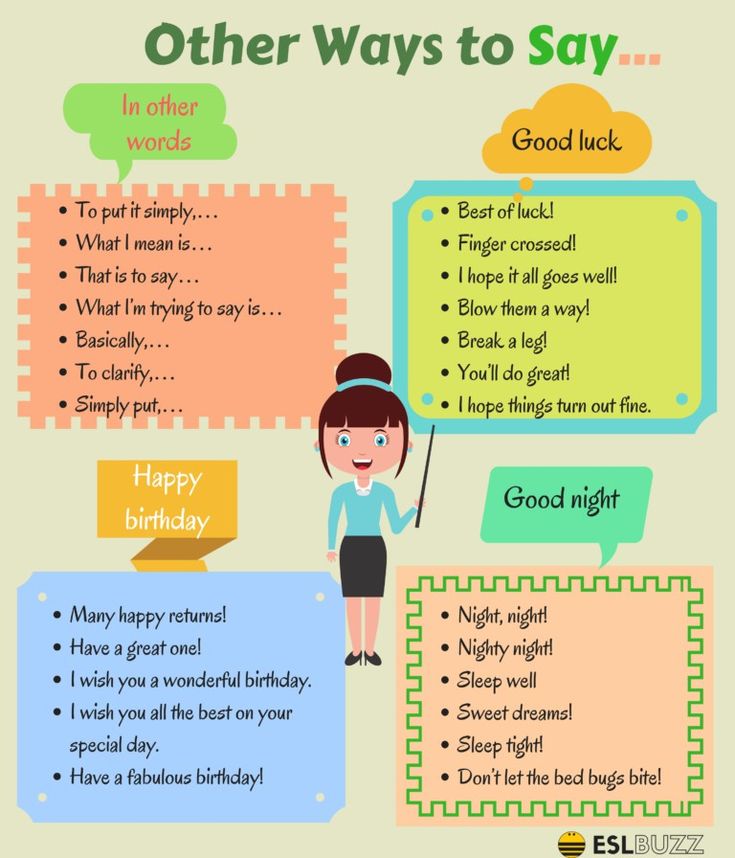 “The rules are your structure,” he explains, “They’re your guidelines for power.” Being consistent with your rules, values, limits, and consequences is a crucial part of establishing a culture of accountability in your home—the structure that upholds you the parent as the authority that your child answers to. When you are not consistent in these areas, you undermine your own authority because the boundaries aren’t clear—and what you say doesn’t match up with what you do. Figure out what obstacles are preventing you from being more consistent, focus on what you’d like to change, and start working on it. It’s never too late to start—and the rewards for both you and your child are huge.
“The rules are your structure,” he explains, “They’re your guidelines for power.” Being consistent with your rules, values, limits, and consequences is a crucial part of establishing a culture of accountability in your home—the structure that upholds you the parent as the authority that your child answers to. When you are not consistent in these areas, you undermine your own authority because the boundaries aren’t clear—and what you say doesn’t match up with what you do. Figure out what obstacles are preventing you from being more consistent, focus on what you’d like to change, and start working on it. It’s never too late to start—and the rewards for both you and your child are huge.
Related Content:
Your Child Is Not Your “Friend”
Mother or Martyr: Are You Doing Too Much for Your Child?
10 Things Parents Should Be More Strict About (And 10 Things They Can Stand To Be More Lax About)
Raising kids is probably the hardest job out there, and frankly there is no rulebook one can strictly follow. Every child is different and needs a slightly different approach, which means something might work for one kid but not for the other. And because of this parents tend to often get confused on how to approach their child. Well firstly, they should always follow their parenting instincts, because those are very rarely wrong, but if they do need some additional parenting help, we have assembled a list of 10 things parents should try to be strict about and 10 things they can definitely be more lax about.
Every child is different and needs a slightly different approach, which means something might work for one kid but not for the other. And because of this parents tend to often get confused on how to approach their child. Well firstly, they should always follow their parenting instincts, because those are very rarely wrong, but if they do need some additional parenting help, we have assembled a list of 10 things parents should try to be strict about and 10 things they can definitely be more lax about.
Now as with everything, parents do need to make sure to adjust these to their child and their needs, but in general, most of these are applicable to every kid out there. From having to brush their teeth two times a day, to letting them do things their own way (even if they are doing them wrong), there's surely something every parent can learn from this list. And if not, congrats, they are already nailing this whole parenting thing!
Now here they are, 10 things parents should try to be more strict about and 10 things they can definitely be more chill about.
Let's start with the 10 things parents can stand to be more lax about...
Via: forbesimg.comSo we all know how important extracurricular activities are nowadays, especially for teens who are hoping of getting into their dream college. But regardless of the kid's age, parents should really never force their kid into an extracurricular activity the child doesn't like, even if the parents think it would be great for them. The whole point of extracurriculars is that they should be fun for the child, and the child should want to participate in them. So let your child try out anything they like, and never force them to stick to something just because you think it's good.
19/20 Let Them Choose Their Friends
Via: dissolve.comIt is never a good idea for parents to force friendships upon their kids. Sure you can let your child meet a family friends child, and you can hope they become besties, but if they don't click, they don't and you certainly don't need to do anything about them. And if your child does make friends you're not too fond of, try to not show it. Of course, if the friend group your child is in seems dangerous to you in any way, it is okay to interfere, but otherwise, just let your child be their own person and pick their own friends.
And if your child does make friends you're not too fond of, try to not show it. Of course, if the friend group your child is in seems dangerous to you in any way, it is okay to interfere, but otherwise, just let your child be their own person and pick their own friends.
18/20 They Should Be Allowed To (Mostly) Wear What They Want
Via: twitter.comSome kids love fashion, and they love picking their own outfits. Others couldn't care less about what they wear. Either way, letting your child wear what they want is part of them growing up and figuring out what they like and who they are (as silly as that sounds), so do not interfere with their fashion choices unless it's necessary. Having that said, do make sure they aren't breaking any of their school's dress codes, but other than that let them explore all the wonderful variety the world of fashion offers, and let them have a preppy or punk phase if they want to.
17/20 Respect Their Idea Of Fun
Via: cloudfront.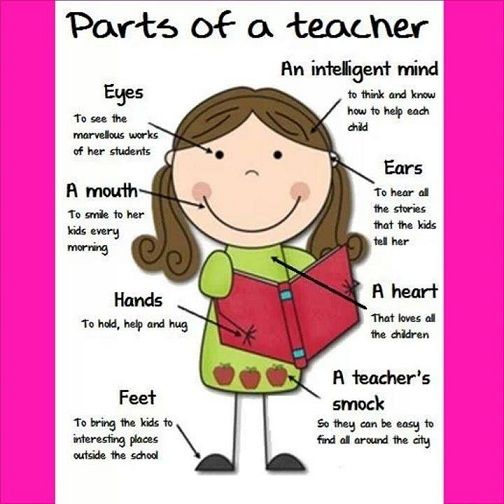 net
net What you as a parent think would be fun for your kid, might not actually be fun for them. Times have changed and parents - no matter how young they might be, are still a different generation than their kids, and it is no secret that the idea of fun kind of changes with the generations. So if your child is having some free time and they want to do fun stuff, let them choose what they feel like doing instead of you forcing something upon them. Hey, maybe you'll even learn a thing or two if if they let you participate!
16/20 Special Occasions Can Change The Rules
Via: todaysparent.comAny rule you have with your kids should not be impossible to change. Adapting to the circumstances (and to each child individually) is always beneficial for everyone involved. And some rules just need to be thrown out the window for special occasions such as a child's birthday. There's no need to make them clean their room then, and one can also let them stay out and hour or two longer on their special day.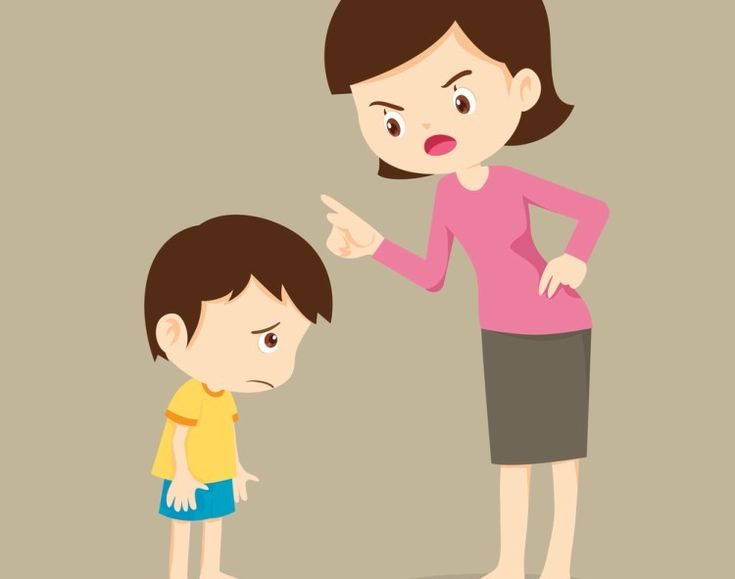 Either way, while having rules is crucial, it is also important to know when not to stick to them, and when it's time to adapt and change them.
Either way, while having rules is crucial, it is also important to know when not to stick to them, and when it's time to adapt and change them.
15/20 Let Them Decorate Their Own Room
Via: pinterest.comA child's room is their own little safe haven. Which is exactly why you should always let them decorate it whichever way they like. And if they are sharing a room with a sibling, make them agree to either decorating it together or each decorating their side of it. You should never force your own interior style on your kids, and honestly if they want to put up posters or stick stickers on their furniture, just let them. Everyone always remembers the room they grew up in, and you certainly want your child to remember it as a happy memory!
14/20 Let Their Free Time Be Theirs
Happy children having fun in the park while playing with jumping rope.If your kid has free time, you should really let that time be truly theirs, and not plan too much for them during that time. This way if they want to read a book they can do that, if they want to hang out with friends no one is stopping them, and if it happens that they want to do something with you, then that's great! But honestly, parents should never force their children to spend their free time with them, because even the youngest of children still crave some alone time, or time spent with someone besides their parents.
This way if they want to read a book they can do that, if they want to hang out with friends no one is stopping them, and if it happens that they want to do something with you, then that's great! But honestly, parents should never force their children to spend their free time with them, because even the youngest of children still crave some alone time, or time spent with someone besides their parents.
13/20 Sleepovers Are Okay
After the parents go to bed...Honestly, it is 2019, which means that any parents who are agains sleepovers need to understand that sleepovers are just a crucial part of childhood, and no kid should be denied that. So if you're for some reason uncomfortable with letting your child stay at another family's house try to get to know the family and see if you end up changing your mind. And if it turns out you don't at least be open to hosting sleepovers, so that your child doesn't have to miss out on this experience. Seriously, there's just something unexplainably exciting about having your bestie stay over!
12/20 Always Let Them Share Their Input And Feelings
Via: understood. org
org Some parents are strict to the extent that the child does not feel comfortable to share their feelings and complain to the parents if something is bugging them. And while being strict surely has it's upsides, no parent should be so strict that the child feels uncomfortable to share their input with them. Which is why it is always important to let the child know they can tell you anything, even if they think it might offend or hurt you. At the end of the day you do want your kid to feel comfortable in the household, and if they are not for some reason, they should be able to confide in you.
11/20 Let Them Do Things Their Way
Via: timeincapp.comYou know what kids really don't like? When they are doing something and you keep interfering and trying to show them how to do it better. Of course sometimes this is completely justified, but a lot of times you just do it because watching them struggle annoys you. But here's the thing: How will your child ever get to learn something on their own if you're constantly there to help them and tell them how to do it. Sometimes kids need to learn the hard way, as that trains their mind to think more logically. So next time you wanna tell them how to do something, wait and see if they figure it out on their own.
Sometimes kids need to learn the hard way, as that trains their mind to think more logically. So next time you wanna tell them how to do something, wait and see if they figure it out on their own.
And here are 10 things parents need to be strict about...
10/20 They Must Brush Their Teeth At Least Twice A Day
Via: drnovelly.comThis one might seem silly, as most people already know the importance of brushing teeth, but one would be surprised how many times parents allow their kids to go to sleep without having brushed, simply because the child is too tired to brush them. And honestly, adults are often too tired as well, but we know how important it is for our oral health, so we force ourselves to do it anyway. Which is exactly why you should force your kid as well. Besides, once the kid realizes they can't get out of it, they will stop trying, we promise!
9/20 Not Letting Kids Binge Watch Too Much
Via: tefal.co.ukOkay, let's face it, watching content on TV or laptop is just part of the world's daily routine nowadays. And kids are no different, they love to sit and watch a couple of episodes of their favorite child's show, or have the newest Disney movie on repeat. And while it is so easy to just let your child do that, it is also no good for their health. Too much screen time can have plenty of health consequences, from not being able to fall asleep to getting irritated easily. Parents should definitely be more strict when it comes to how much TV time they allow their child per day, and they should stick to it.
And kids are no different, they love to sit and watch a couple of episodes of their favorite child's show, or have the newest Disney movie on repeat. And while it is so easy to just let your child do that, it is also no good for their health. Too much screen time can have plenty of health consequences, from not being able to fall asleep to getting irritated easily. Parents should definitely be more strict when it comes to how much TV time they allow their child per day, and they should stick to it.
8/20 Doing Their Homework As Soon As Possible
Via: healthline.comOnce you teach your child to do their homework as soon as possible, it will turn into a habit for them, and they will have it so much easier the older they get - and the harder the homework gets. Now of course, this doesn't mean the child needs to jump to it as soon as the get home from school - let them have a meal and rest a bit, but doing there homework sooner rather than later will benefit them so much later on, as they are less likely to become procrastinators. And while procrastinators still usually get things done, it is so much easier not being one.
And while procrastinators still usually get things done, it is so much easier not being one.
7/20 They Need To Have A Healthy Sleep Pattern
Via: hearstapps.comSo many adults struggle with having a healthy sleeping pattern. And a lot of it do so because they didn't have a healthy foundation from a young age. This is why parents need to realize that making sure your child gets enough sleep on a daily basis, goes to bed around the same time and wakes up at a certain time as well, is crucial for their health later on. This can be very hard to implement as many kids like to stay up later on the weekends, as well as sleep in, but keeping an eye on this and not letting them get too far away from their regular schedule is what a good parent would do.
6/20 They Need To Learn To Keep Their Promises
Via: todaysparent.comOne thing parents should make sure to teach their child is the importance of a promise. Sure promises may not always be kept, and under special circumstances that is acceptable, but most promises need to be kept. This way the child knows from an early age on that giving someone their word is not something to play with. But this obviously goes both ways, if you want your child to keep their promises, you as a parent must lead by example and keep yours as well. Building a good and strong character is something that is done from a very young age, and this is just one example on how.
This way the child knows from an early age on that giving someone their word is not something to play with. But this obviously goes both ways, if you want your child to keep their promises, you as a parent must lead by example and keep yours as well. Building a good and strong character is something that is done from a very young age, and this is just one example on how.
5/20 Make Sure They Know Their Responsibility
Via: mnn.comKids can have some responsibility from a very early age on, and they should. Having responsibility and being used to it is a good trait, and parents should definitely try to make their kids understand this as soon as possible. Which is why they should be strict when it comes to their child's responsibility. So whether it is taking the family dog out for a walk or cleaning their room once a week if the child knows they must do it, the parents need to be strict and insist it gets done. Of course, as with everything there are exceptions, aka you should never force a sick child to do such things.
4/20 A Curfew Is A Curfew
Via: tripsavvy.comOnce the child is in their teens it is bound to start asking to go out and hang with their friends in the evenings. And in this case a curfew is a necessity, and parents need to make sure the child understands that they cannot be late. Letting you child be late half an hour or more and having them get away with it totally defeats the purpose of the curfew. If they are late (more than 15-20 minutes), they should be grounded in some way, just to make sure they are not late again. And of course, curfews are allowed to be moved for special occasions such as birthdays or school dances. One day they will understand this was for their own safety.
3/20 Healthy Eating Is Essential
Via: feedingmykid.comAnother thing that affects the child's health besides a good sleeping pattern is eating healthy food. Which is why parents should be more strict on this as well. Allowing your child to eat a bunch of sweets and snacks from an early age on is definitely bad fro them, so parents should try to keep those to a minimum, and use them only as special rewards, and perhaps let the child indulge in those on special occasions only. Having your child have healthy eating habits will make their life so much easier later on, and trust us, they will thank you for it!
Having your child have healthy eating habits will make their life so much easier later on, and trust us, they will thank you for it!
2/20 House Rules Need To Be Followed
Via: organizedmom.netEvery household has it's own rules and parents should be strict on making sure their kids follow them. Whether this means taking their shoes of at the entry door, washing their dishes after a meal, or making their bed every morning, the house rules are there and every family member needs to follow them without exception (if they are old enough of course). Having rules in a household prevents it from getting too chaotic and ensures there's always some kind of order in it, which is a necessity. And if a child doesn't follow the rules parents need to be more strict with it!
1/20 Internet Safety Is Important
Via: imgix.netWe live in an age where the internet is a regular part of everyday life (heck, you're reading this one the internet right now), but being aware of the dangers of internet is part of every modern parents job. Which is why making sure your kid is using the internet safely is of extreme importance. Using browser extensions, or even apps that allow only family safe content is something parents should definitely look into if their child is spending any unsupervised time on the internet. Also making sure your kids know not to talk to strangers online is a must!
Which is why making sure your kid is using the internet safely is of extreme importance. Using browser extensions, or even apps that allow only family safe content is something parents should definitely look into if their child is spending any unsupervised time on the internet. Also making sure your kids know not to talk to strangers online is a must!
Sources: ahaparenting.com, kidspot.com.au, simplemost.com, thestudentroom.co.uk
Memo for strict parents - Psychologos
01 Jan. 2013
Four colors of freedom: restrictions in the lives of children (Yu.B. Gippenreiter)
When children are small, it is convenient to indicate the rigidity of the rules with colors. An interesting system was proposed by Yulia Borisovna Gippenreiter in the book "Communicate with a Child - How?": we divide the entire field that regulates the child's behavior into four zones. We denote them by color: green, yellow, orange, red.
0Read more
Jan 01 2013
Children. Guidelines
Guidelines
It is necessary to work with a child, play, read books to him, answer questions asked by him ... all parents without exception know this. Caring, loving moms and dads probably do just that. At the same time, no process of raising and educating a little man, as a rule, can do without “guiding instructions” from the parents, who occupy a leading position of a leader, the main one in a joint business, a game.
0Read more
9Oct 1 0002 2022How to get the right behavior from the child
In order to teach the child something or get a certain behavior from him, parents must somehow show him what is good (what behavior they approve of)
0Read more
01 Oct. 2022
How not to swear at children
A newborn is sometimes compared to a wild colt - he follows only his natural instincts. He gets used to it and as a result turns out to be completely unprepared for the fact that not always and not everyone will fulfill his desires. We know well how difficult it is to be around a person who is not accustomed to self-control, who does not know how to cope with his own emotions. Is it easy for him to live in the world himself?0003
We know well how difficult it is to be around a person who is not accustomed to self-control, who does not know how to cope with his own emotions. Is it easy for him to live in the world himself?0003
0Read more
Oct 01 2022
How to educate - with a stick or a carrot
According to one well-known American sociologist, the birth of newborns into the world is a systematically repeated invasion of barbarians. Newborns do not have morality, they cannot behave in accordance with social needs, they are not familiar with the system of moral and other norms of this society. All this is taught to the child in society and, above all, in the family. There are many forms of learning based on both conscious and subconscious perception, and among these various pedagogical techniques, the principle of reward and punishment, known from ancient times, which will be discussed in this article, naturally occupies the first place.
2Read more
Oct 01 2022
Constructive punishment
Adults create rules and prohibitions, and children break them. Children are not always obedient, and parents are not always fair. Sometimes a slap turns out to be the main or even the only way out of a crisis situation. Can you punish? At what price are you willing to defend parental authority? When is punishment beneficial? In this article you will find answers to many questions.
Children are not always obedient, and parents are not always fair. Sometimes a slap turns out to be the main or even the only way out of a crisis situation. Can you punish? At what price are you willing to defend parental authority? When is punishment beneficial? In this article you will find answers to many questions.
4Read more
Jan 01 2014
Young children should obey their parents (V. Filinova)
Should a child be limited in all his desires, or is it better to do without control, which narrows the scope of freedom? No need for extremes: only a reasonable balance between strict restrictions and freedom of action will allow your child to develop harmoniously. This article is about how to introduce requirements and prohibitions into the life of a baby and achieve his obedience.;;;;
0Details
Jan 01 2010
Punishment
What is punishment? The most difficult thing is to define the most common things. The most general definition, apparently, can be as follows. Punishment is a means of control, consisting in the deliberate infliction of trouble on a subject, in order to change undesirable behavior or way of thinking.
The most general definition, apparently, can be as follows. Punishment is a means of control, consisting in the deliberate infliction of trouble on a subject, in order to change undesirable behavior or way of thinking.
2Read more
Oct 01 2022
Praise and encouragement
It is possible, of course, to influence the formation of a child's character and normal psychological qualities not only with the help of punishments. The effectiveness of punishments will be higher if they are used infrequently and against the background of rewards. Parents often pay the main attention to correcting the weaknesses and imperfections in the child's behavior. It is much more pleasant and effective for both children and parents to educate with the help of manifestations of positive emotions and encouragement. And prohibitions, remarks and punishments should be extreme measures.
0Read more
Oct 01 2022
Do no harm! as the basis of mental hygiene of communication
Without mental hygiene of communication (without its principle "Do no harm!" and without its information about the psychological patterns of communication), moral practice can quite unexpectedly acquire a negative sign (a person, believing that he is doing good, generates evil, or with visible observance harm is done to another person under the law). Non-observance of the principle "Do no harm!" ultimately serves as one of the main causes of many heart diseases and neuropsychiatric disorders.
Non-observance of the principle "Do no harm!" ultimately serves as one of the main causes of many heart diseases and neuropsychiatric disorders.
0Read more
How strict should a parent be? How to establish discipline in the family
In recent weeks, many parents have felt that if discipline is not established, the children will literally sit on their heads, and productive work from home will be forgotten. What is the best way to manage a child's behavior? Usually, parents choose one of three options: be strict, be gentle, and cooperate. Is it bad to be a gentle parent? And strict? And what will you have to learn in order to introduce the method of cooperation into family life?
Strict parents - relationships suffer
Being strict is perhaps the most common approach to discipline. It is about imposing the will of an adult on a child. For example, you insist that the baby clean the room, and punish him if he does not.
Nobody likes to do what others decide for them, and your son or daughter is no exception. Some children are more accommodating, but certainly not all. Such a balance of power leads to a dead end, to humiliation and anger.
The danger is that you are exemplifying how to "be right", "be tough", and how badly you handle frustration yourself. By making persistent demands on your offspring, you unconsciously teach them to always insist on being right, to be inflexible and intolerant.
Then you find yourself in a vicious circle of mutual intransigence, hopeless situations and showdowns, or everything ends with a refusal to communicate. In the long run, this is not the best way to achieve a peaceful relationship. Of course, from time to time you can shout: "Toys in places, immediately!", But let this be an exception, and not your usual manner of communication.
Being overbearing with your children puts their future relationship with the authorities at risk. Either they will resist any cooperation with the authorities, or they will not be able to take leadership positions, or you will raise a dictator.
So, constantly imposing your will on a baby is not the best way to raise a moral person who is ready to cooperate with others, and is not suitable for building good relations with him.
Gentle parents - children are peddling
Being too soft means not setting any standards for your son or daughter and not showing what you expect from them. Often this lack of parental boundaries is either a protest against an overprotective, anxious parenting style, or a reaction to their own childhood under the heel of authoritarian parents.
There are children who are able to independently set standards and criteria for their behavior, but not all of them can. A child who does not understand what is expected of him often experiences confusion and uncertainty. Sometimes, because of our unwillingness to repeat our parents' parenting patterns, we are pushed in the opposite direction, and we do not set boundaries for the child at all.
If you think about it carefully, it becomes clear that this is a reaction to the past, to the behavior of our parents, and not to the situation that we are dealing with now, in the present.
However, being gentle is not bad at all. Often this is the best way out. Sometimes it is wise to give up your requirements for the baby, because he is not yet ready for them.
For example, your older brother may not be too difficult to clean, but his younger brother will wear out before he finishes. Instead of having a fight, and even one in which there can be no winners, and the result will only be the destruction of a friendly relationship with each other, accept it as a fact: the baby is not yet ready to do what you want from him. This means not insisting on cleaning toys.
No, this is not the same as giving in or giving up. You deliberately put off setting boundaries. Showing gentleness can be a good short-term solution until the child learns to cooperate.
Learning to talk to your child in a new way
Collaboration is when you and your child work together to solve a problem. In this case, you perform the role of an adviser rather than a dictator.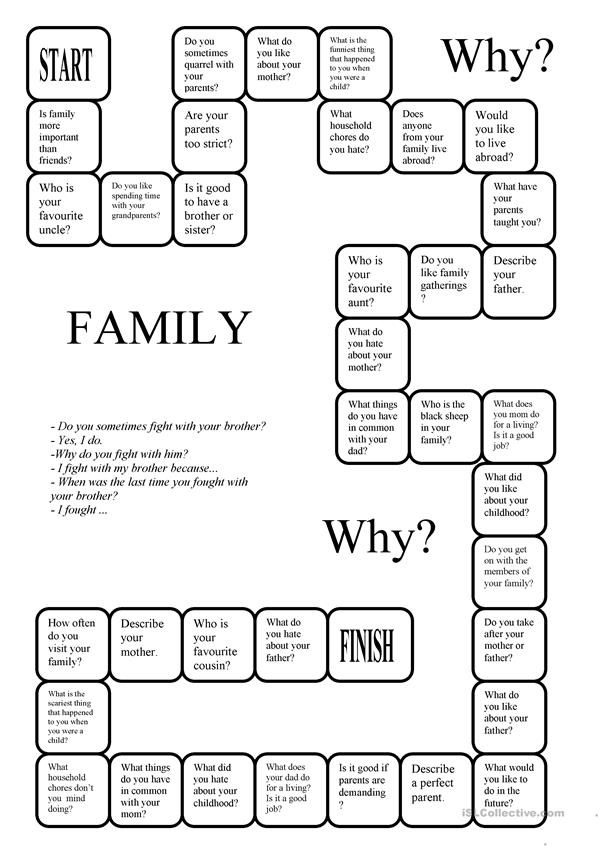 This is my favorite approach because it involves a joint search for a solution to the problem.
This is my favorite approach because it involves a joint search for a solution to the problem.
So what is the collaboration method and how does it work?
- State the problem using the i-message: "I need your room to be clean and I would like you to clean it."
- Find out what feelings the child's behavior expresses. He may need your help with this. For example: "Does it seem unfair to you that you have to clean the room when your girlfriend always has a mess there?"; "Are you already tired, and you think that this will never end?".
- Validate these feelings. "I understand it seems unfair" or "At first, any big job seems endless."
- Brainstorm a solution. "However, I need to keep the room clean. What's the easiest way to do this?"
- Follow the plan, repeating the individual steps as many times as needed.
And don't judge your child.
The second stage can be very insidious, because everything inside you protests against voicing something that you do not approve of in any way.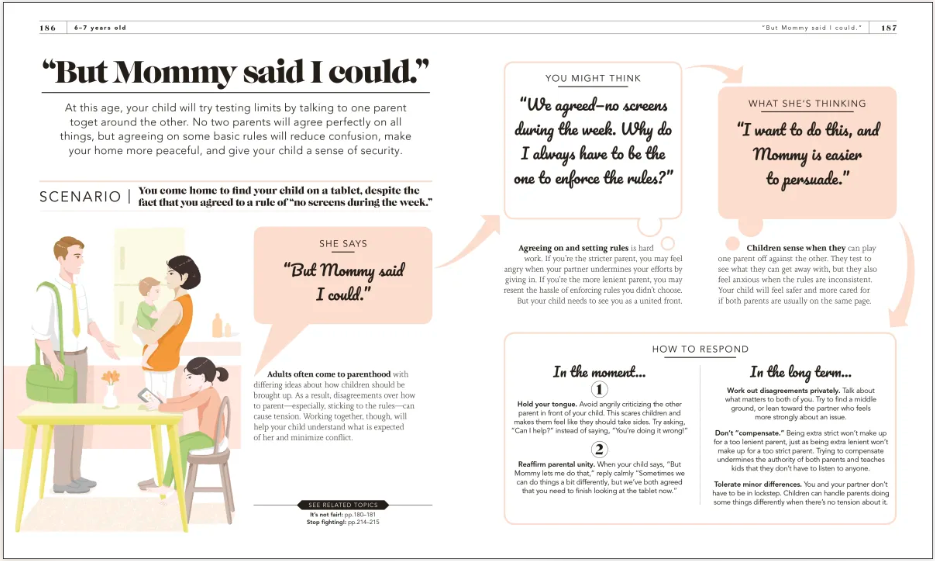 But by not recognizing the feelings that you do not like, you only ensure that the children persist in them. Since the baby is not yet able to verbalize everything they feel, it may be necessary to use multiple choice answers to figure out what emotions are behind the problem, as in the example above.
But by not recognizing the feelings that you do not like, you only ensure that the children persist in them. Since the baby is not yet able to verbalize everything they feel, it may be necessary to use multiple choice answers to figure out what emotions are behind the problem, as in the example above.
Having identified the child's feelings, the problem should be reformulated. Option: "Your room is a complete mess, and if you don't clean up immediately, I'll throw out all your toys" good for nothing. It is threats and the cultivation of shame that only increase resistance. Instead, show empathy.
Yes, it takes practice and often seems counterintuitive. But there is no other way for your children to learn to respect the feelings of others than by showing them how to respect their own feelings.
When you're together looking for a solution to a problem, it's important to give your child the lead and not dismiss the options they offer. He may state something like: "You can leave everything as it is.






